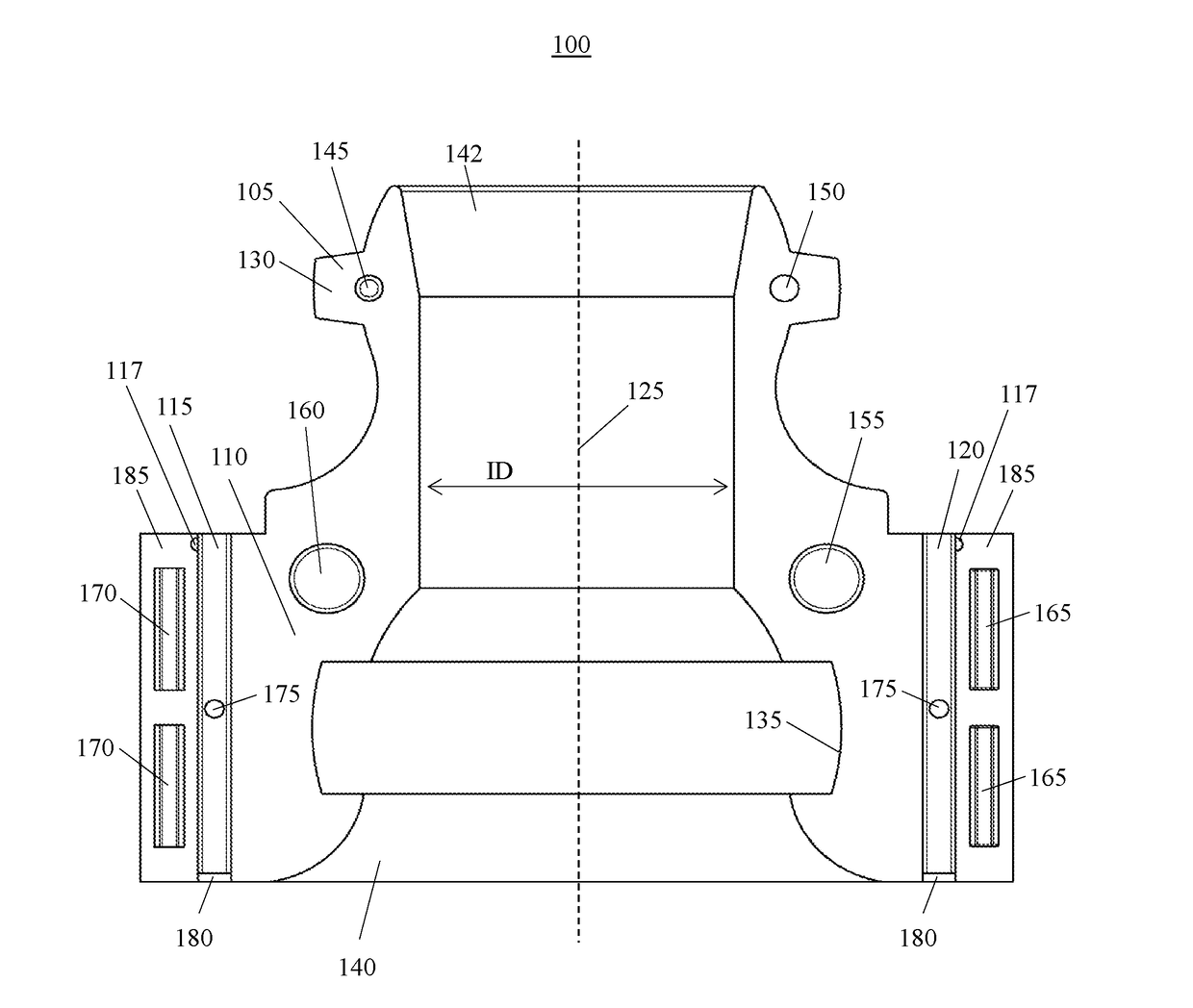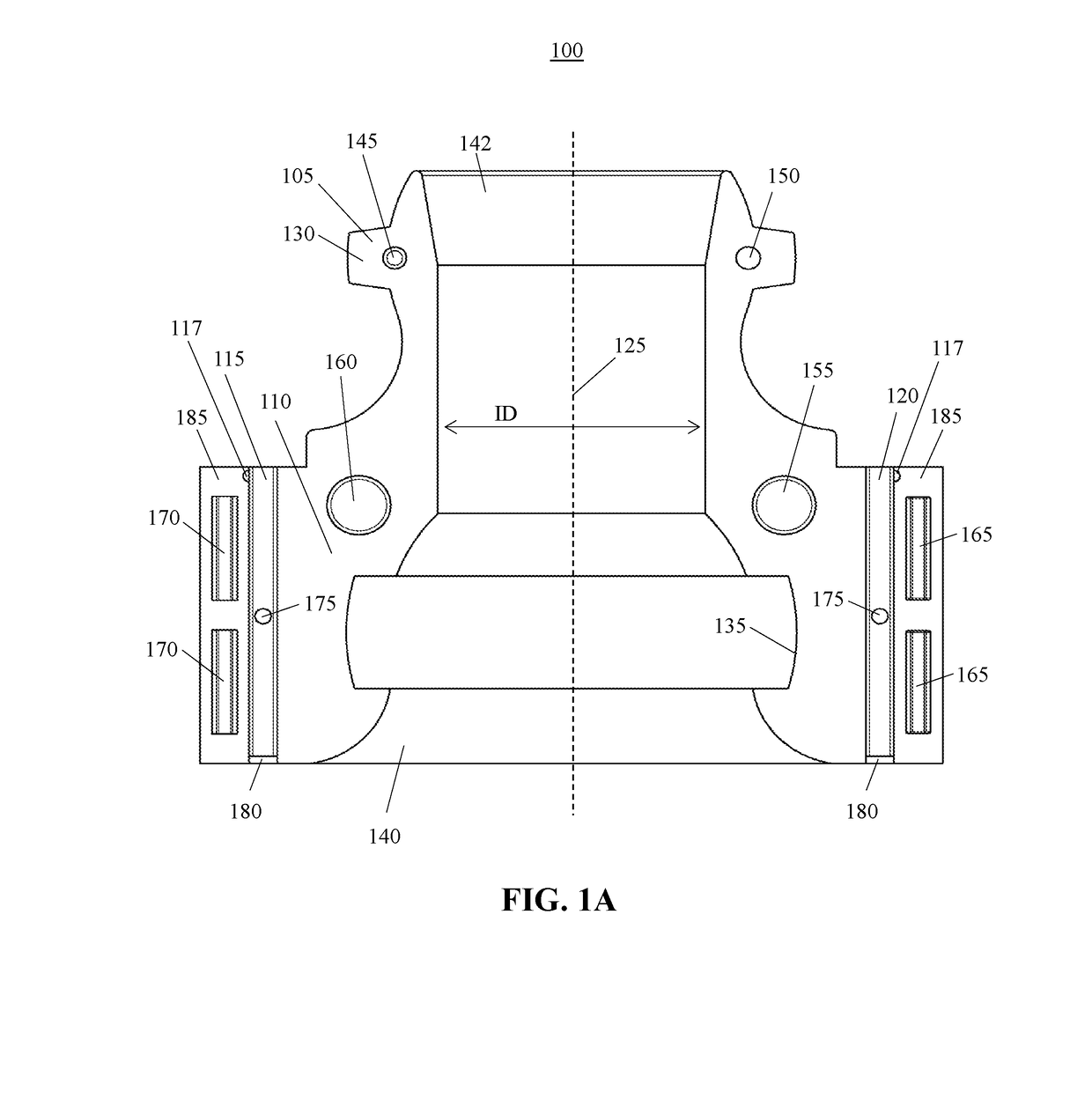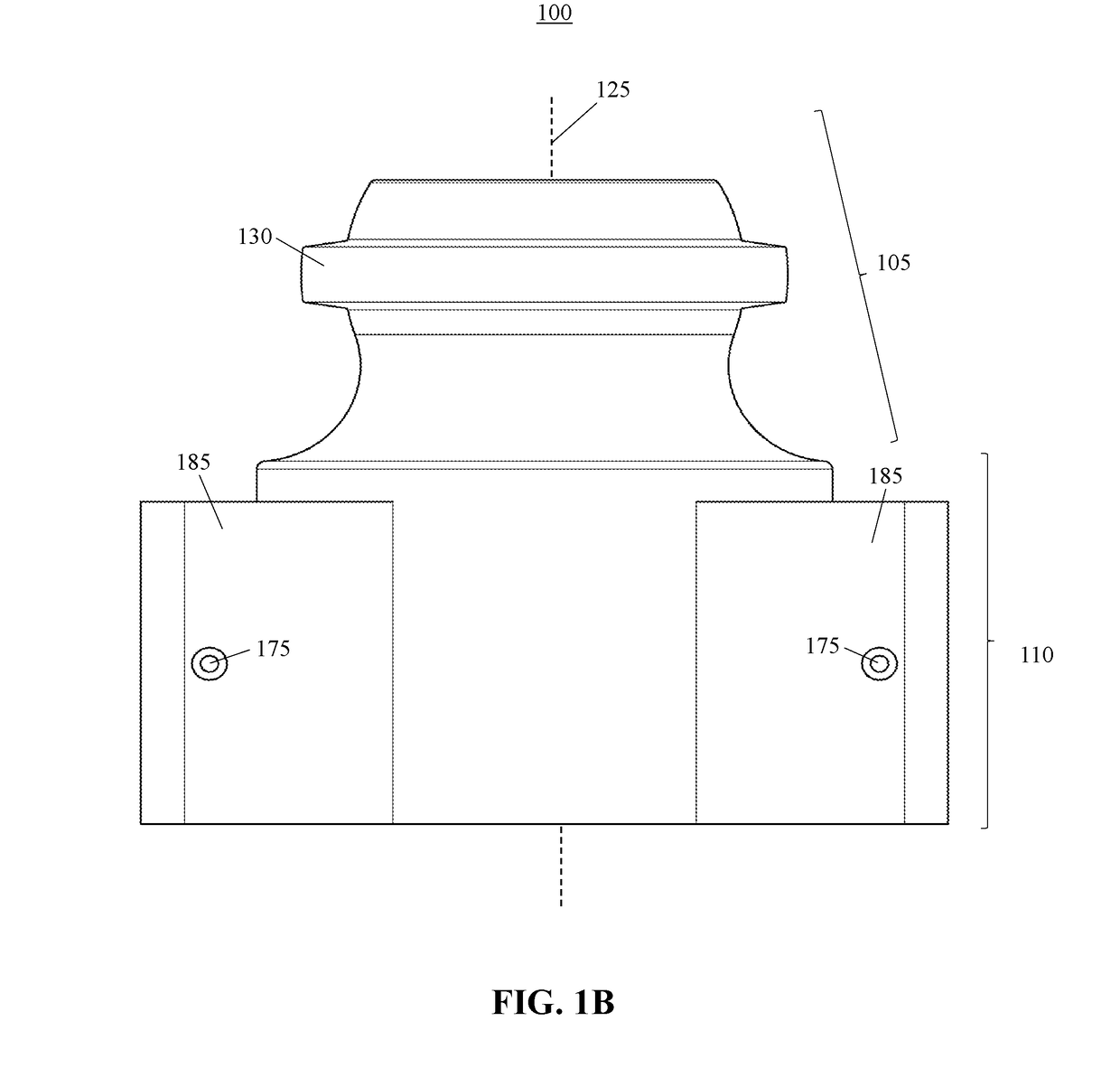Non-metallic vertebrae bend restrictor and vertebrae end piece
a non-metallic, restrictor technology, applied in the direction of float cable installation, pipe laying and repair, mechanical equipment, etc., can solve the problems of high tensile bending load, internal pressure, hydrostatic load on the conduit,
- Summary
- Abstract
- Description
- Claims
- Application Information
AI Technical Summary
Benefits of technology
Problems solved by technology
Method used
Image
Examples
Embodiment Construction
[0014]One or more embodiments of the present invention are described in detail with reference to the accompanying figures. For consistency, like elements in the various figures are denoted by like reference numerals. In the following detailed description of the present invention, specific details are set forth in order to provide a thorough understanding of the present invention. In other instances, well-known features to one of ordinary skill in the art are not described to avoid obscuring the description of the present invention.
[0015]Conventional vertebrae bend restrictors are used in virtually all offshore drilling, production, and workover rigs as well as wind farms and are well known in the art. A conventional vertebrae bend restrictor includes a plurality of vertebrae, each comprised of a first member and a second member that connect around a portion of the conduit and are connected by metallic nuts and bolts typically comprised of steel, snap connections, straps, or zip ties...
PUM
 Login to View More
Login to View More Abstract
Description
Claims
Application Information
 Login to View More
Login to View More - R&D
- Intellectual Property
- Life Sciences
- Materials
- Tech Scout
- Unparalleled Data Quality
- Higher Quality Content
- 60% Fewer Hallucinations
Browse by: Latest US Patents, China's latest patents, Technical Efficacy Thesaurus, Application Domain, Technology Topic, Popular Technical Reports.
© 2025 PatSnap. All rights reserved.Legal|Privacy policy|Modern Slavery Act Transparency Statement|Sitemap|About US| Contact US: help@patsnap.com



